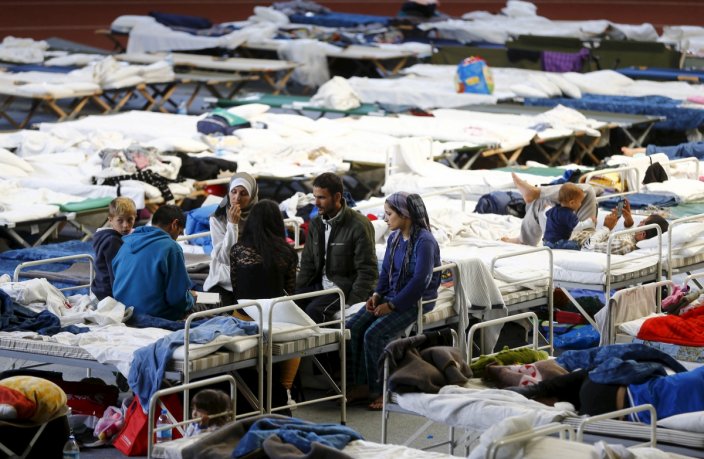Germany working to contain measles outbreak among new arrivals from Chechnya
A measles outbreak in Germany has put the spotlight on the need for proactive vaccination of people traveling from Chechnya.

Three cases of measles were recorded at asylum centres from January to mid-May 2016, according to data from the Robert Koch Institute in Berlin. However, 53 cases were reported at 11 different centres between mid-May and mid-July.
All cases were in children aged 0–13 years, with the exception of two adults aged 21 and 22 years. People affected had travelled from Chechnya to Germany using different routes crossing Poland, Russia or Belarus.
“This increase seems to be concomitant with the arrival in Germany of groups of asylum seekers from Chechnya,” according to the European Centre for Disease Surveillance and Control.
The type of measles virus is the same as a strain circulating in the Caucasus. Residents and staff at the centres were also infected.
The case which appears to have sparked the outbreak among Chechen asylum seekers was reported on 10 May 2016, a few days after the patient arrived at a centre, suggesting infection was acquired while travelling, the ECDC said.
“Similarly, symptoms appeared within a few days of arrival at the asylum seeker centres for several other cases, suggesting that the infection was likely to have been acquired while travelling to Germany.”
The ECDC has published a Scientific Opinion on the public health needs of irregular migrants, refugees or asylum seekers. Measles vaccination with an MMR vaccine should be considered and prioritised upon arrival for children up to 15 years of age with no or undocumented vaccination history, it says.
The need for staff working in migrant reception centres to be vaccinated against measles is also essential, according to experts.
“Measles vaccination should be recommended to staff working in migrant reception centres who are not immunised, only partially immunised or do not know their immunisation status and for whom there are no contra-indications.
The infection in Germany spread to staff who may then have transmitted it further and suffered from complications. A measles outbreak in a refugee settlement in Calais, France, in January 2016 was another example of an event where cases also occurred among staff working within refuge centres.
“Although efforts are underway to eliminate measles in Europe, outbreaks continue to occur because of low vaccination coverage in some countries and pockets of susceptible people who are either not immunised or only partially immunised,” the ECDC said.
For more, see the ECDC measles surveillance page



